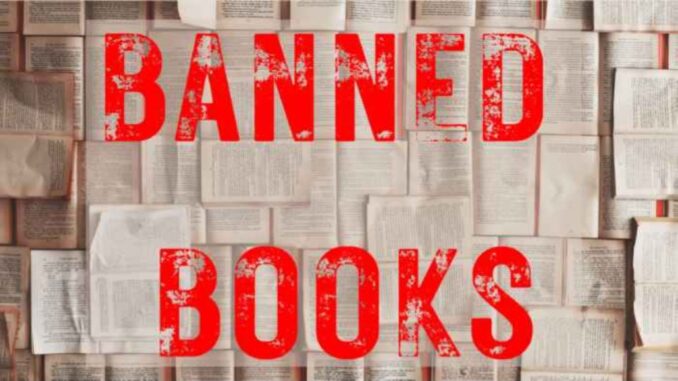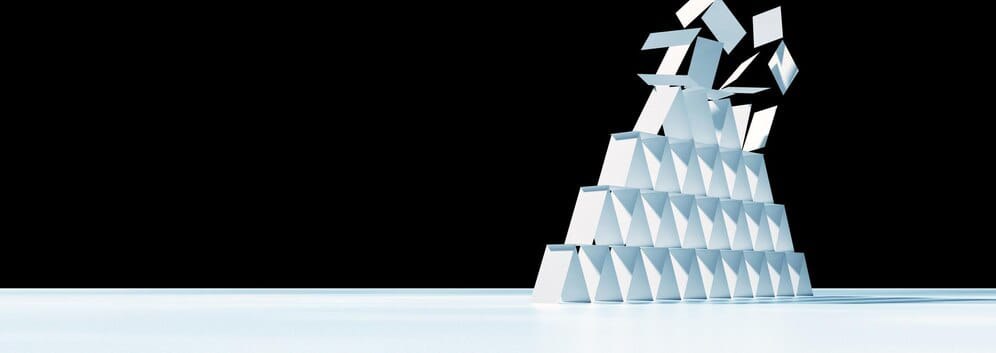
In 2023 alone, the conservative wave in libraries and schools in the US banned 3,000 titles in 41 states and there were 5,894 attempts at censorship. This deliberate campaign is part of an attack on freedom of expression promoted by anti-rights groups and the Republican political wing. With the capitalist crisis, basic freedoms on the tightrope.
By Carolina Menéndez Trucco
When the house of cards is about to fall. It appears that the crisis of current capitalism has reached such a point that it cannot resist the most basic rights. Last year, conservative parent groups in the United States requested to remove 2,571 book titles from public school libraries, most written by or about members of the LGBT+ community and black authors, including classics like Toni Morrison’s The Bluest Eye and The Handmaid’s Tale by Margaret Atwood, and more recent works such as This Book is Gay by Juno Dawson and Gender Queer by Maia Kobabe. But the measure also covers a wide variety of books, from bestsellers such as Stephen King, to classic works such as Anna Karenina, by Leo Tolstoy.
But there is more. There are dozens of established authors whose books were eliminated from student libraries, including Aldous Huxley, Ernest Hemingway, Jack Kerouac, Gabriel García Márquez, among more than 1,200 authors. The new legislation seeks to regulate the content of libraries or the way librarians do their work. According to the American Library Association (ALA), the increase is due to complaints from parents, “activists,” , school board officials and legislators who question children’s access to certain books. Banning campaigns are operated by groups such as Moms for Liberty, Parents Defending Education, and No Left Turn on Education. Every year, the rates grow. In short, small groups impose their censorship and subjugate the freedoms of the group.

The double standard
Not only retrograde groups are behind. “What the numbers reflect is that this is a campaign by politically partisan groups to remove vast swaths of books that don’t meet their agenda, whether that’s a political or religious or moral agenda,” says Deborah Caldwell-Stone, Director of the American Library Association’s Office for Intellectual Freedom.
Particularly, that of some politicians, such as the Republican governor of Florida, Ron DeSantis, who is trying to ban books and thus win votes for the next presidential elections. In 2022, the conservative approved the ‘Individual Freedom Act’. Teachers in Florida cannot comment freely on certain topics, even though the policy remains controversial and violates the First Amendment of the Constitution. His anti-rights policy is well known, but the law, also known as ‘Stop WOKE’, prohibits any debate on sexual orientation and gender identity in the classroom, therefore violating basic constitutional freedoms.
Now, although the great duel of the moral vacuum could be fought in the next Republican presidential primaries in 2024, Trump’s main rival continues rehearsing. The politician acts with double standards. On the one hand, he strongly condemns what he considers the “indoctrination” of young people, but on the other, he imposes a subject in schools, telling his biased version of history: students must receive at least 45 minutes of instruction every November on the “victims of communism.”
Weak democracies
From the shelf to the basket. Book bans have tripled in the past year in the United States, with Florida leading the way with the most cases, surpassing conservative Texas. The PEN America association, of which more than 7,500 writers are part, warned that this is the worst wave of censorship in decades, with more than 5,800 books banned since 2021.
In the supposed homeland of democracy, what could be the future of the next generations with so many restricted works that do not even touch rebellion in their plots? Education goes beyond school programs, but what is learned at school and at home is decisive. This cultural censorship, which seeks to nullify all critical thinking from childhood, is another expression of the generalized decline of bourgeois democracy in times of capitalist crisis. To put it mildly, it is a cultural, social and political crisis that puts the system itself in its sights: the last card of capitalism sooner or later ends up collapsing the rest.








